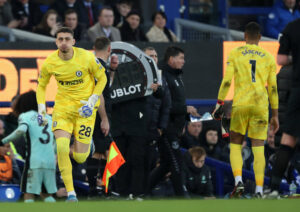Ivor Broadis was a legend on Wearside and the North East. He passed away in 2019 and, until his passing, was Sunderland’s and England’s oldest living player. Broadis was an exceptional player and goalscorer. However, he was also famous for something that few, if any, have done.
Ivor Broadis: The Manager Who Transferred Himself
War Hero to Youngest Manager in the Football League
During World War Two, Broadis, who was 16 when war was declared, was part of the RAF, completing over 500 flying hours. Even though there was a war on, there was still time for football. Broadis was a talented amateur before the war and would turn out as a guest player for teams such as Manchester United, Tottenham Hotspur, Millwall and Carlisle United.
During Broadis’s guest appearances, his reputation as a talented forward grew. Shortly after the war, Broadis, who was still with the RAF, was posted to Cumberland. Upon hearing this, Carlisle, aware of his ever-growing reputation having played for them during the war, offered the then 23-year-old a job. That job was as player-manager. Upon accepting, Broadis became the youngest player-manager in the Football League. It is a record that still stands today.
Despite never having played league football previously, Broadis quickly showed that in the old Third Divison North, he was a player playing at a level far beneath him. A predator in front of goal, he scored 55 goals in 94 games. After two and a half seasons, Carlisle’s player-manager decided to make history.
Transferring Himself to Sunderland
In January 1949, Ivor Broadis exercised the right to sell himself. Several clubs were interested in his services; it was Sunderland, however, then known as the ‘Bank of England Club’ due to their vast spending power, who won the race. The fee Carlisle received for their star player and manager helped keep the cash-strapped club afloat. In an interview, Broadis said:
“Carlisle got £18,000 for me. It was an incredible amount in those days.”
“All I did was exercise the right to be transferred. Blackburn, Man City and Preston were interested but only Bill Murray, the Sunderland manager, came to see me. That’s why I joined but it was the board who agreed the fee.”
His time on Wearside could be described as both a success and a failure. Although he scored goals, Broadis and his new team finished third in England’s top flight in 1950. It was a season where Sunderland should have won the title. They went onto miss out by just one point. An unexpected loss late in the season ended up being the reason behind the team squandering the title. The club have not come close to winning their seventh title since.
Ivor Broadis Made England History
An injury-plagued second season on Wearside, where he managed just 20 appearances, still brought two hat-tricks and 10 goals. However, the decision was made to cash in on the forward with Sunderland receiving £7000 more than the fee they paid for him. A healthy profit in those days.
Soon after joining Manchester City, Broadis made his England debut. He featured just 14 times for his country but left his mark in history. He scored eight goals in those 14 appearances but his two goals against Belgium in the 1954 World Cup ensured his place in the history books. Broadis’ two goals for his country made him the first player to score more than once in a World Cup finals game for England.
After a spell at City, Broadis went onto play for Newcastle United before returning to Carlisle as a player-coach and finishing his playing career at Queen of the South.
After Football
When Broadis called time on his career, he became a journalist. Throughout his time in journalism, Broadis would have tried hard not to make a mistake as a league official did when registering the young Ivor. The official misread his real name Ivan as Ivor. The name stuck with him for the rest of his life.
Main Photo
Embed from Getty Images






